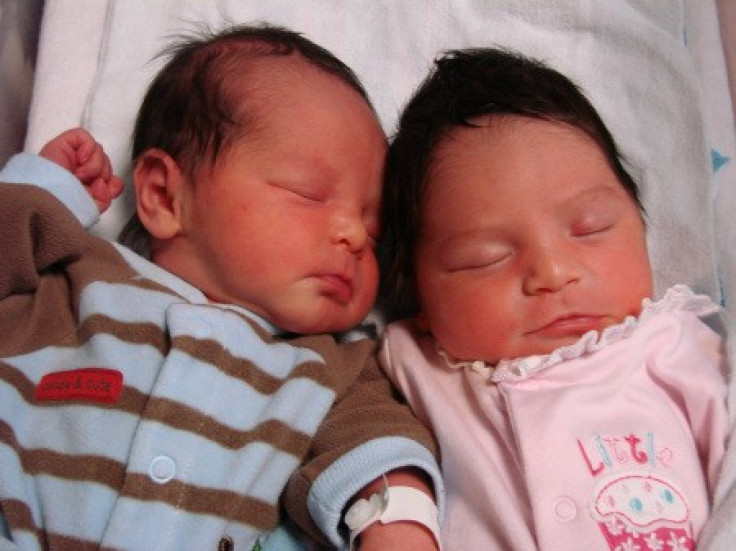Woman With Two Uteruses Gives Birth to Twins

At Morton Plant Hospital Thursday, twins Nathan and Natalie Barbosa were delivered in what seemed like a normal, everyday birth.
But the St. Petersburg Times noted that this delivery was anything but usual. The mother had a rare condition called uterus didelphys, which meant that she had two uteruses instead of the typical one.
It was definitely a shocker, Andrea Barbosa, the 24-year old new mother from Clearwater, Florida, told the newspaper. I was frightened and scared-a little bit of everything in one.
Barbosa and her husband noted that they conceived the twins without any reproductive medicine or other efforts. The obstetrician, Dr. Patricia St. John, said the odds of such a pregnancy were 1 and 5 million.
It isn't the fact that Barbosa had two uteruses that made this birth so unusually. The Mayo Clinic points out that people with two uteruses can lead normal sex lives, pregnancies and deliveries. In fact, she has already given birth to another child, now 2-year old Izabella.
Yet, the fact that she gave birth to twins, each from separate uteruses, made this delivery so unusual.
The percentage of women with a double uterus is likely higher in women with a history of miscarriage or premature birth, according to the Mayo Clinic. Many women have a double uterus and do not even realize it.
The paper notes that some women experience infertility, miscarriage and abnormal menstrual cycles, which can be painful. However, Barbosa had no signs.
From the outside, there was nothing wrong with me, Barbosa said, noting she was diagnosed with the condition about four years ago following a routine exam.
Now with three children, Barbosa said to the Times that she has no interest in playing the odds again.
The first pregnancy I had one, the second I had two, she said. I can't risk having three next time.
© Copyright IBTimes 2024. All rights reserved.











